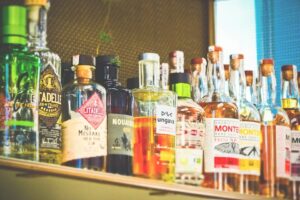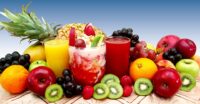Bladder sensitivity can be unpleasant especially as one ages. How to calm an overactive bladder when such sensitivity arises involves identifying the food and beverage that typically irritate that bladder.
This became a personal cause for me, and very soon three other friends joined me on this quest to understand how different foods could either worsen symptoms of common bladder disorders or calm them.
This article only focuses on overactive bladder disorder, persistent bladder pain and how to calm an irritable bladder.
Common Bladder Disorders
- Urinary Tract Infections (UTIs)
- Stress Urinary Incontinence (SUI)
- Overactive Bladder (OAB)
- Bladder Cancer
- Persistent bladder pain – Interstitial cystitis
Two previous articles – Bladder Problems in Older Women, and Bladder Problems in Older Men reviewed and discussed these disorders in detail.
They also looked at how to improve bladder health through changes in lifestyle, urination frequency and habits, anatomical exercises of the pelvic floor in women, and, consumption of food and fluids.
How to Calm an Overactive Bladder?
Before you can proceed to calming an overactive bladder, you must first identify what could be irritating it. Find the irritants, remove them, and calm down your overactive bladder. Sound easy?
Foods that can Irritate the Bladder – How to Calm an Overactive Bladder
Several foods are recognized as being bladder irritants while others may have a soothing effect on sensitive bladders. Their irritating or soothing effects are generally relevant to conditions such as overactive bladder and interstitial cystitis.
Fortunately, one of the first articles I stumbled upon was a list of known foods that are bladder irritants in an article by the John Hopkins Center for Women’s Pelvic Health. It was emphasized that most people are not sensitive to ALL products on the list.

- Alcoholic beverages
- Carbonated beverages
- Coffee (including decaffeinated)
- Tea
- Sugar especially artificial sweeteners, saccharin, aspartame, corn sweeteners, honey, fructose, sucrose, lactose
- Milk Products: milk, cheese, cottage cheese, yogurt, ice cream
- Chili and spicy foods
- Chocolate
Irritant Fruits – How to Calm an Overactive Bladder
Did you know that there are several fruits you can eat that can cause an overactive bladder? Here are 11 of such fruits:
- Apples and apple juice
- Cranberries and cranberry juice
- Grapes
- Guava
- Citrus fruit
- Peaches
- Pineapple
- Plums
- Strawberries
- Tomatoes and tomato juice
- Cantaloupe
Other Irritants

- Vitamin B complex
- Vinegar
An article by Whelan (2018) included a few other irritants listed below:
- Sports drinks (e.g., Gatorade etc.)
- Foods containing artificial flavorings and preservatives
- Raw onions
Personal Observation on Foods that can Irritate the Bladder
There were some food and beverages that could potentially be the cause of my overactive bladder and many of them surprised me:
- Milk Products: milk, cheese, cottage cheese, yogurt, ice cream
- Chili and spicy foods
- Honey
- Several fruits – pineapple, strawberries, grapes, cranberries
The most surprising was Vitamin B-complex.
Needless to say, all my friends identified different irritants in addition to our common love of caffeinated coffee and different teas.
Because of my curiosity with why Vitamin B would be a bladder irritant, I decided to conduct a bit of research on this.
Findings on Vitamin B-complex as a Bladder Irritant
Check Dosage Taken When Looking for How to Calm an Irritable Bladder
The recommended dosage for the B vitamins depends on age, nutrient demands, gender, and status of health. Too much of B vitamins cannot be consumed when taken as a supplement as directed.
However, if these vitamins are taken in excessively high supplemental doses, they could cause serious side effects (refer to a previous article – Health Benefits of B Vitamins – The Remarkable B Complex). They include the following:
- High doses of B3 (niacin) – cause vomiting, high blood sugar levels, skin flushing and liver damage (Ellsworth, M.A 2014)
- High doses of B6 – cause nerve damage, sensitivity to light and painful skin lesions (Vrolijk, M.F. 2017)
- Can turn urine bright yellow. This is simply the body flushing out excess unused vitamins.
How to Stop an Overactive Bladder at Night: The Case for Water Soluble and Fat Soluble Vitamins
An article by Halse, H (2019) titled “Can Vitamins Cause Frequent Urination?” similarly confirmed that Vitamin B complex could not increase the frequency of urination and explained how the thinking that it could might have arisen.
Water Soluble Vitamins
Our bodies require 13 vitamins from two main vitamin groups – water-soluble and fat-soluble vitamins.
Water-soluble vitamins do not need to be frequently replenished because they do not accumulate in the body. Consequently, you cannot consume too much of them in a regular diet.
Because they are water -soluble, they are flushed out by fluids which is what gave rise to the myth about frequent urination since many want to know how to stop an overactive bladder at night which is when it can become a big inconvenience.
However, the same study stated that there are no known vitamins that cause frequent urination, and there is no evidence to also reference minerals like magnesium as causing frequent urination
Fat Soluble Vitamins
Fat-soluble vitamins, on the other hand, are stored in the fat cells for later use, meaning that high amounts can be accumulated.
Since water-soluble vitamins are flushed out of your body by fluids, it makes sense that a myth about frequent urination caused by vitamins developed.
Other Irritants
So, what other bladder irritants may be at play?
It is well-known that caffeine is a diuretic, and this was a common denominator among the participants in the study in question.
By eliminating one or more of the foods from your diet in a coordinated manner you can easily identify other bladder irritants.
The major culprits for me was the combination of honey which I added to my early morning coffee each day – along with some fruits used to make smoothies (pineapples and strawberries).
Natural Ways to Calm an Overactive Bladder
The American Urological Association (2018) recognizes some bladder friendly foods which can have a calming effect on sensitive bladders. These foods are natural ways to calm an overactive bladder:
- Bananas:
- Green beans
- Squash
- Pears: High sources of fiber
- Nuts: Almonds, cashews and peanuts
- Bread
- Eggs: Protein rich
- Potatoes: Sweet potatoes are preferred over other potatoes because of the fiber
- Lean proteins: Low fat beef, turkey, chicken, pork, and fish when steamed, broiled or baked.
- Whole grains: Oats, rice, quinoa
Other natural ways include bladder training, pelvic floor exercises, reducing caffeine and alcohol intake, staying hydrated, and, eating a balanced diet rich in fiber.
Conclusion – How to Calm an Overactive Bladder
Although there is not a cure for OAB, most people can reduce or alleviate their symptoms through lifestyle changes, medication, or both.
Identifying your food triggers can go a long way in reducing your symptoms and improving your quality of life. You may also find it beneficial to monitor your fluid intake and restrict drinking liquids to certain times.
Related Articles
- Bladder Problems in Older Men – How to Decrease Risks
- Bladder Problems in Older Women – A Handy Guide
- Incontinence in Seniors – A Touchy Subject
- Disposable Incontinence Underwear – How to Make a Choice
- Protective Incontinence Underwear – Guide to Best Options
FAQ
I am trying to find how to stop an overactive bladder at night?
To stop an overactive bladder at night, reduce fluid intake in the evening, avoid caffeine and alcohol, practice bladder training, and perform pelvic floor exercises. Maintain a regular sleep schedule and consult a healthcare provider for medications or other treatments if needed.
How to calm an overactive bladder?
To calm an overactive bladder, practice pelvic floor exercises, limit caffeine and alcohol, stay hydrated, maintain a healthy weight, and schedule regular bathroom breaks. Bladder training and avoiding bladder irritants can also help. Consult a healthcare provider for additional treatments or medications if needed.
Are there natural ways to calm an overactive bladder?
Yes, natural ways to calm an overactive bladder include practicing pelvic floor exercises, reducing caffeine and alcohol intake, staying hydrated, consuming a balanced diet rich in fiber, and using bladder training techniques. Herbal supplements like pumpkin seed extract or magnesium may also help, but consult a doctor first.
References
The John Hopkins Center for Women’s Pelvic Health. Bladder Irritants https://www.hopkinsmedicine.org/johns_hopkins_bayview/_docs/medical_services/gynecology_obstetrics/bladder_irritants.pdf
Whelan, C. (2018) How to Create a Diet for Your Overactive Bladder https://www.healthline.com/health/overactive-bladder/overactive-bladder-diet
What Are the Best Foods for Bladder Health? https://www.cxbladder.com/us/blog/what-are-the-best-foods-for-bladder-health/
Urology Care Foundation https://www.urologyhealth.org/
American Urological Association www.urologyhealth.org
Ellsworth, M.A (2014) Acute Liver Failure Secondary to Niacin Toxicity Case Rep Pediatr. 2014; 2014: 692530. https://www.ncbi.nlm.nih.gov/pmc/articles/PMC3965920/
Vrolijk, M.F. (2017) The vitamin B6 paradox: Supplementation with high concentrations of pyridoxine leads to decreased vitamin B6 function Toxicol In Vitro 44:206-212. https://pubmed.ncbi.nlm.nih.gov/28716455/
Halse, H (2019) Can Vitamins Cause Frequent Urination? https://www.livestrong.com/article/217945-what-vitamins-cause-frequent-urination/
Gleason JL et al. (2013) Caffeine and urinary incontinence in US women. Int Urogynecol J. 2013 Feb;24(2):295-302. https://pubmed.ncbi.nlm.nih.gov/22699886/
Peng L et al. (2021) Metabolic syndrome in women with and without interstitial cystitis/bladder pain syndrome. Int Urogynecol J. 32(5):1299-1306. https://pubmed.ncbi.nlm.nih.gov/33215272/


Interesting. I had no idea that the vit B complex and chocolate could add to bladder complications. I eat a lot of chocolate, a few pieces every day. However, I also eat a lot of fruits and vegetables, especially avocados. I try to avoid teas that contain caffeine. Fortunately, there are many teas that are caffeine-free.
If the bladder expels that strong yellow urine, I suppose it’s a good thing and not something to worry about? It’s just flushing out excess vitamins, so it has to be a healthy bodily reaction?
Hi Christine,
If the bladder expels strong yellow urine, there may be other reasons aside from expulsion of excess vitamins. This could also occur as a result of dehydration and not drinking enough water.
Ceci
Thank you for this informative article, this is actually something that I deal with. Might have something to do with the protein powder I indulge in, I have to imagine that there are tons of artificial sweeteners in that. I also happen to have a love for coffee and I really don’t think I am capable of quitting. I have started taking some BCAA powder drinks though. Do you think that will at least have less of an effect compared to coffee? To be honest, its probably worse, artificial sweeteners and caffeine.
Well, I could eat more bananas and bread, maybe incorporating these into my diet will even out the issues I am experiencing, usually only in the morning, but still, I should probably be more careful.
Hi David,
Many people experience overactive bladder, but fortunately there are many foods that are helpful. A lot of processesd foods, sugar and caffinated beverages are triggers we should endeavor to stay away from.
Ceci
This article is timely for me since I have been having difficulties with UTI’s. You have given me a lot to think about as far as my diet is concerned and consumption of Vitamin B. I only take a “one a day” vitamin so I don’t think I have any issues there. However, I do consume some of the foods that I should not over indulge in. I’ll have to keep an eye on that.
Thanks for such an inclusive discussion on this topic. It is more prevalent than one realizes.
Nina
Hi Nina,
Knowledge from information brings understanding. I am so glad that this article has helped you better understand about UTIs. Now you know which foods can cause overstimulate your bladder – and try to steer away from them.
Ceci